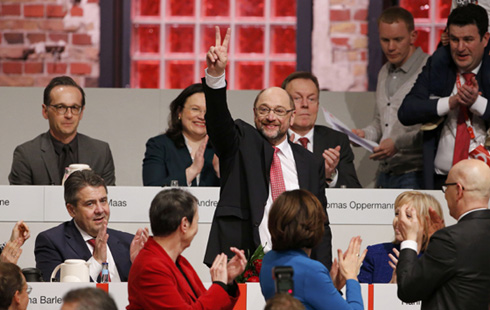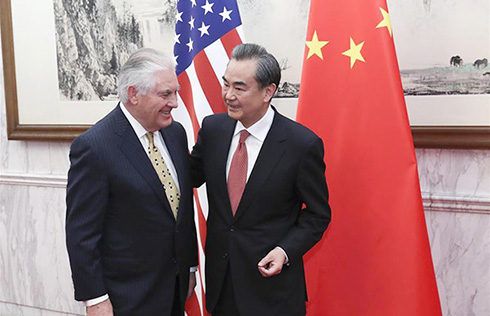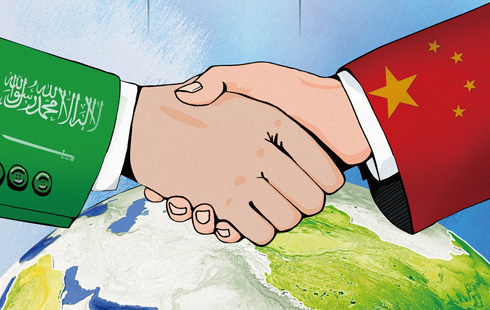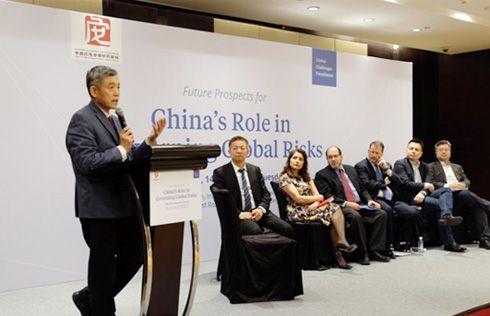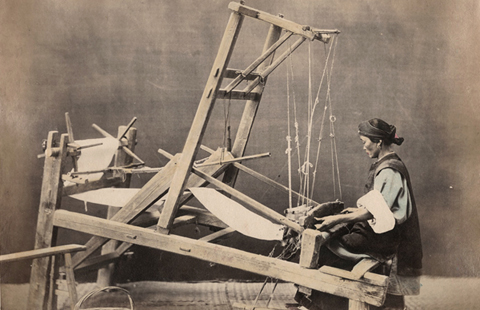Chinese entrepreneur powering up India
Electrical shortages offer opportunity for energy company, An Baijie reports in New Delhi.
For the people of India, power outages are a frequent and inconvenient fact of life, but for Chinese entrepreneurs such as Chen Zhijin, the country's problematic power grid presents huge business opportunities.

Chen is a member of the board of TBEA Energy (India), which was established in Vadodara in the western Indian state of Gujarat on June 28. The company, owned and operated by Tebian Electric Apparatus, China's first listed transformer enterprise, produces power-related equipment, including electrical transformers that could play a crucial role in the upgrading of India's power industry.
TBEA, in which Tebian Electric has already invested $200 million with a further $100 million in the pipeline, is aiming to dominate the power equipment market in India, where installed electrical capacity is just 20 percent that of China.
"The power equipment industry is facing the problem of overcapacity in China, but in India, demand remains high," Chen said, adding that some of the company's products have already been sold to Indian businesses.
The company's mature technology is expected to improve India's electricity power grid, and the products will also be sold to other countries in the region, including Nepal and Cambodia, he said.
With the help of the Indian government, TBEA built its factory on 45.3 hectares of land it purchased from farmers in Gujarat, which is the home state of Indian Prime Minister Narendra Modi, and played host to President Xi Jinping on Wednesday.
'Investor-friendly'
According to the local government's official website, Gujarat is the "only state in India to emerge 'investor-friendly'", and has become an industrial hub that has provided about 27 percent tax of India's annual total tax revenue in recent years.
Compared with some other Indian states, Gujarat has many advantages for investors, such as its location, well-developed infrastructure, and investment policies, Chen said.
"As a manufacturer of heavy industrial equipment, we have to take transportation factors into consideration," he said, pointing out that Vadodara is just 400 km from Mumbai port, and that TBEA's factory is close to the city's railway station.
In addition to its mature infrastructure, Gujarat is home to several support companies that provide components for TBEA, and has a large skilled workforce - factors that were crucial in TBEA's decision to establish its factory in the state in preference to more than 10 other candidate locations, Chen added.
TBEA is just one of several Chinese enterprises to have invested in Gujarat in recent years. In November, Highly Electrical Appliances India Pvt Ltd, which manufactures compressors for air-conditioning units, began operations at a Ahmedabad, the largest city in the state. The company, owned by China's Shanghai Highly Group Co, is expected to manufacture 2 million compressors annually.
The company hopes to exploit a supply shortfall in a market that demands about 3.5 million of the compressors per year - and is expected to see an annual rise in demand of about 20 percent in the coming years - but has just one domestic manufacturer, according to a report on the website of the Shanghai municipal government.
|
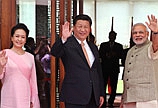 |
In early July, Wei Wei, the then-Chinese ambassador to India, visited Gujarat and met with government leaders and Chinese companies, including TBEA, Shanghai Highly, and Baosteel Group, China's leading iron and steel producer.
Wei said Gujarat is famous for its good investment environment, promising market and huge development potential, all of which are expected to attract more Chinese investors.
Fan Chengliang, a Chinese businessman who imports spices from India, said Gujarat has a good infrastructure, including a convenient road network, making the state a good choice for investors.
"In Gujarat, even the roads in townships and villages are better than those in many other states," he said.
According to Fan, one of the factors behind Modi's victory in India's general election in May was his contribution to Gujarat's rapid economic growth during his time as head of the state government: "Apparently, the Indian people are hoping that Modi can produce a similar economic miracle for the country as a whole and I'm sure he will."
He believes that Gujarat will become a template for reform and opening-up in India, similar to the rapid economic growth experienced by South China's Guangdong province after it was chosen as a pilot area for the implementation of China's reform and opening-up policies in the late 1970s.
"There are reportedly 400 million people below the age of 25 in India, which could become an unimaginable strong force for the country's economic development," Fan said.
Improved cooperation
TBEA's Chen said he has been impressed by the Gujarat government's efficiency in areas such as license applications, land purchases and worker recruitment. "In the past, we heard frequent criticism of the bureaucracy and inefficiency of India's local governments, but when we started our business here in Gujarat, we were quickly given the green light for a number of permit applications," he said.
He added that Chinese investment has also benefited local people, such as the workers at the TBEA plant, where 93 percent of the 512-strong workforce is Indian, including the chief executive officer.
Neeta Prasad, a TBEA employee, said the growth of the industry has resulted in rising wages and living standards. "The company has provided training courses to help us improve our work skills and gain a better understanding of the company's culture," she said.
The increased bilateral cooperation is appropriate, given that 2014 has been designated "The Year of Friendly Exchanges between China and India". At a meeting with Montek Singh Ahluwalia, then-deputy chairman of India's Planning Commission, in March, Premier Li Keqiang said China was ready to work with India to consolidate the countries' mutual political trust and increase cooperation.
Li called on both countries to combine China's technological and cost advantages in sectors such as high-speed rail and energy with India's market demand, and push forward regional intercommunication and integration.
Ahluwalia said the countries have a golden opportunity for growth, and that India will strengthen cooperation in areas such as industrial parks, rail transport, energy and urbanization, according to Xinhua News Agency.
Professor B.R. Deepak, a senior researcher at the Jawaharlal Nehru University in New Delhi, said that if India is able to attract huge infrastructure investment from China, its budget deficit could be alleviated to some extent.
"India is one of the biggest markets in Asia, and I don't think China will ignore a big market, especially when China is willing to go global," he said, adding that the Indian government's "Smart Cities" project can learn from China's experience of urbanization.
"It's one the agendas of the Modi government to build 'smart cities' across India, so there will be hundreds of them. China's urbanization rate has reached almost 52 percent, and more people now live in cities, not only in megacities but also in small ones." he said.
Contact the author at: anbaijie@chinadaily.com.cn







